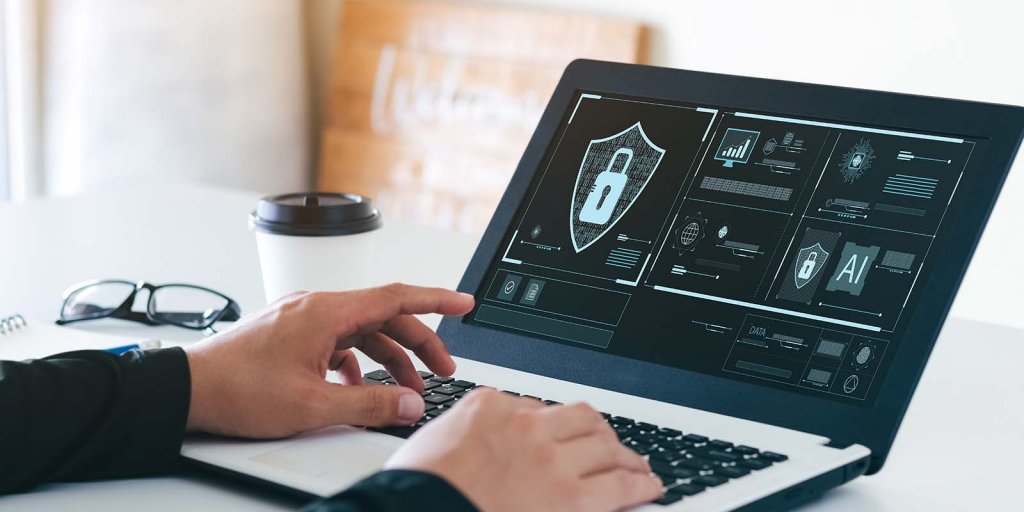Exploring the realm of cybersecurity jobs with remote flexibility, this introduction sets the stage for an insightful discussion on the benefits, challenges, and trends in this evolving field.
 As we delve deeper into the various aspects of remote cybersecurity work, readers will gain a thorough understanding of the skills, roles, and opportunities available in this dynamic industry.
As we delve deeper into the various aspects of remote cybersecurity work, readers will gain a thorough understanding of the skills, roles, and opportunities available in this dynamic industry.
 As we delve deeper into the various aspects of remote cybersecurity work, readers will gain a thorough understanding of the skills, roles, and opportunities available in this dynamic industry.
As we delve deeper into the various aspects of remote cybersecurity work, readers will gain a thorough understanding of the skills, roles, and opportunities available in this dynamic industry.
Overview of Cybersecurity Jobs with Remote Flexibility
Cybersecurity jobs with remote flexibility allow professionals in the field to work from anywhere, providing the opportunity to balance work and personal life effectively. This setup enables employees to perform their tasks without being physically present in a traditional office setting.Working remotely in the cybersecurity field offers several benefits. One of the main advantages is the flexibility it provides, allowing individuals to work at their own pace and from the comfort of their chosen environment. This can lead to increased productivity and job satisfaction as employees can better manage their schedules and reduce commute time.The trend of remote work opportunities in cybersecurity is on the rise, driven by advancements in technology that facilitate secure remote access to networks and systems. Companies are recognizing the benefits of allowing employees to work remotely, such as cost savings on office space and increased access to a wider talent pool. As a result, more cybersecurity professionals are opting for remote roles to take advantage of these benefits while still contributing effectively to their organizations.In-Demand Cybersecurity Roles with Remote Flexibility
As the demand for cybersecurity professionals continues to rise, many companies are offering remote work options for various roles in the field. This flexibility allows individuals to work from anywhere while still contributing to the security of organizations.Popular Cybersecurity Roles with Remote Work Options
Here are some of the popular cybersecurity roles that often come with remote work flexibility:- Cybersecurity Analyst
- Security Consultant
- Incident Responder
- Penetration Tester
- Security Engineer
Companies Hiring for Cybersecurity Roles with Remote Flexibility
Several companies actively hire cybersecurity professionals for remote positions. Some examples include:1. Cisco
2. IBM
3. Amazon
4. CrowdStrike
5. FireEye
Required Skills and Qualifications for Remote Cybersecurity Jobs
In order to excel in remote cybersecurity jobs, professionals need a combination of technical skills, certifications, and qualifications, as well as soft skills that are essential for remote work in the industry.Technical Skills
- Proficiency in network security protocols and technologies.
- Experience with intrusion detection systems and threat intelligence.
- Knowledge of cybersecurity best practices and compliance standards.
- Ability to conduct vulnerability assessments and penetration testing.
- Familiarity with cloud security and encryption techniques.
Certifications and Qualifications
- CompTIA Security+: Entry-level certification covering basic cybersecurity concepts.
- Certified Information Systems Security Professional (CISSP): Advanced certification for experienced professionals.
- Certified Ethical Hacker (CEH): Focuses on offensive security techniques.
- Bachelor's or Master's degree in Cybersecurity or related field: Provides in-depth knowledge and skills.
Soft Skills
- Strong communication skills for remote collaboration and client interactions.
- Attention to detail and problem-solving abilities for analyzing security incidents.
- Adaptability and self-discipline to work independently in a remote environment.
- Critical thinking and creativity to anticipate and respond to emerging cyber threats.
Challenges and Solutions in Remote Cybersecurity Work
Working in remote cybersecurity roles comes with its own set of challenges that professionals need to address. Here, we'll discuss some common obstacles faced in remote cybersecurity work and propose strategies to overcome them.Challenge: Communication and Collaboration
One of the major challenges in remote cybersecurity work is the lack of face-to-face communication and collaboration with team members. This can lead to misunderstandings, delays in project timelines, and overall inefficiencies in the workflow.- Utilize collaboration tools: Make use of communication tools like Slack, Microsoft Teams, or Zoom to stay connected with team members and ensure seamless collaboration.
- Schedule regular check-ins: Set up regular virtual meetings to discuss project updates, address any issues, and maintain open lines of communication.
- Establish clear communication protocols: Define communication guidelines within the team to ensure everyone is on the same page regarding expectations and deadlines.
Challenge: Data Security Risks
Another challenge in remote cybersecurity work is the increased risk of data breaches and security threats when working outside of a secure office environment.- Use secure VPN connections: Ensure all remote workers use secure VPN connections to encrypt data and protect sensitive information when accessing company networks.
- Implement multi-factor authentication: Require employees to use multi-factor authentication for accessing company systems and applications to add an extra layer of security.
- Regular security training: Provide ongoing cybersecurity training to remote employees to educate them on best practices for safeguarding company data.
Challenge: Work-Life Balance
Maintaining a healthy work-life balance can be challenging in remote cybersecurity roles, as the lines between work and personal life can easily blur when working from home.- Set boundaries: Establish clear boundaries between work hours and personal time to avoid burnout and maintain overall well-being.
- Create a designated workspace: Designate a specific area in your home for work to help separate work from leisure activities and minimize distractions.
- Take regular breaks: Schedule regular breaks throughout the day to avoid sitting for long periods and to recharge both mentally and physically.















